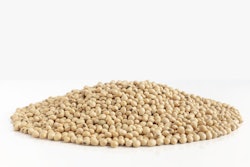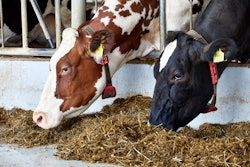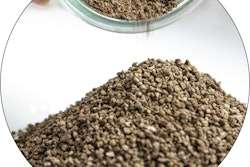
Treating less-than-ideal feed ingredients such as canola meal with carbohydrase enzymes could come with some unexpected benefits, according to a study from the University of Manitoba.
In an initial study published in the November edition of the journal Animal Feed Science and Technology, replacing standard canola meal with canola meal treated with carbohydrase enzymes increased the digestibility of the diet and decreased the abundance of E. coli in the digestive tract without compromising the growth performance of broiler chickens. But while the research team had hoped to see an increase in digestibility, it was the shift in the chickens' gut bacteria that could prove more exciting, said Anna Rogiewicz, an assistant professor at the University of Manitoba and an author on the paper with lead author Yanxing Niu, a postdoctoral fellow at the University of Manitoba.
Treating the canola meal with the enzymes appeared to trigger the growth of lactic acid bacteria, which can promote gut health in chickens and other animals and could help animal producers replace growth-promoting antibiotics, Rogiewicz said.
Lactic acid bacteria “produce short-chain fatty acids that are critical to the organism, and also make sure the gut itself is healthy,” she said. Gut health supports the immune system, and some probiotics also help crowd out disease-causing bacteria such as Salmonella, so probiotic feed additives could serve as a substitute for some uses of antibiotics in animal diets, Rogiewicz said.
Enzymes are already included in animal diets to help break down indigestible fiber, Rogiewicz said, but merely adding enzymes to the diet may not be enough to trigger the probiotic effects observed by Rogiewicz's team. In the study, researchers increased the enzyme inclusion level and expanded the treatment time to 48 hours in order to test enzymes' maximum potential, Rogiewicz said.
However, Rogiewicz said the research team is working with an industry partner, CBS Bio Platforms, to test whether the treated canola meal could be separated into two products — the treated meal and a powdered probiotic product that could be used as a feed additive.
The research team is also planning additional experiments that would test the use of the carbohydrase enzyme blend on other food byproducts to determine if it could be used to increase the value of other ingredients in animal feed.














